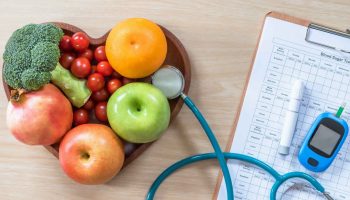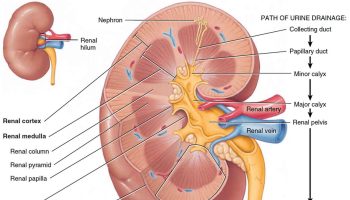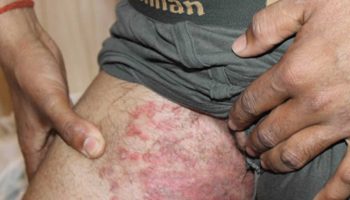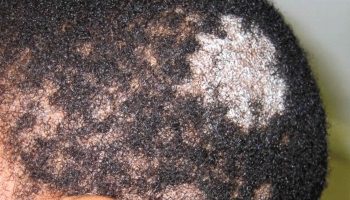What is lipase
Lipase is a protein (enzyme) released by the pancreas into the small intestine. It helps your body break down and absorb fat. Your mouth salivary glands also produce a small amount of salivary or lingual lipase that begins fat digestion in the mouth (but mainly after the food is swallowed). The lower half of your stomach contains Chief cells that also secrete gastric lipase. Together, the gastric lipase and lingual lipase, digest 10% to 15% of the dietary fat in your stomach. However, the lipase test is used to measure the amount of the pancreatic lipase in the your blood 1.
Why the Lipase Test is Performed ?
This test is done to check for disease of the pancreas, most often acute pancreatitis.
- Lipase appears in the blood when the pancreas is damaged.
Normal Lipase Results
In general, normal results are 0 to 160 units per liter (U/L) or 0 to 2.67 microkat/L (µkat/L).
Normal value ranges may vary slightly among different laboratories. Talk to your provider about the meaning of your test results.
Some laboratories use different measurements or may test different specimens.
What Abnormal Lipase Results Mean ?
Higher-than-normal levels may be due to:
- Blockage of the bowel (bowel obstruction)
- Celiac disease
- Duodenal ulcer
- Cancer of the pancreas
- Pancreatitis
- Pancreatic pseudocyst
This test may also be done for familial lipoprotein lipase deficiency.
How is Lipase test done ?
To prepare for the test you must NOT eat for 8 hours before the test.
Your health care provider may ask you to stop taking medicines that may affect the test, such as:
- Bethanechol
- Birth control pills
- Cholinergic medicines
- Codeine
- Indomethacin
- Meperidine
- Methacholine
- Morphine
- Thiazide diuretics.
You may feel slight pain or a sting when the needle is inserted to draw blood. There may be some throbbing at the site after the blood is drawn. Veins and arteries vary in size so it may be harder to take a blood sample from one person than another.
Risks of lipase test ?
There is very little risk from your blood taken.
Other uncommon risks may include:
- Bleeding from the needle puncture site
- Fainting or feeling lightheaded
- Blood collecting under the skin
- Infection (a slight risk any time the skin is broken)
What is Pancreatitis ?
Pancreatitis is inflammation in the pancreas 2. The pancreas is a long, flat gland that sits tucked behind the stomach in the upper abdomen. The pancreas produces pancreatic enzymes that help digestion and hormones that help regulate the way your body processes sugar (glucose). One of the many pancreatic enzymes is pancreatic lipase which digest fats in your meal.
Most of the time, the pancreatic enzymes are only active after they reach the small intestine.
If these pancreatic enzymes become active inside the pancreas, they can digest the tissue of the pancreas. This causes swelling, bleeding, and damage to the pancreas and its blood vessels. This problem is called acute pancreatitis.
Acute pancreatitis affects men more often than women. Certain diseases, surgeries, and habits make you more likely to develop this condition.
- Alcohol use is responsible for up to 70% of cases in the United States 3. About 5 to 8 drinks per day for 5 or more years can damage the pancreas.
- Gallstones are the next most common cause. When the gallstones travel out of the gallbladder into the bile ducts, they block the opening that drains bile and enzymes. The bile and enzymes “back up” into the pancreas and cause swelling.
- Genetics may be a factor in some cases. Sometimes, the cause is not known.
Pancreatitis can occur as acute pancreatitis — meaning it appears suddenly and lasts for days. Or pancreatitis can occur as chronic pancreatitis, which is pancreatitis that occurs over many years.
Mild cases of pancreatitis may go away without treatment, but severe cases can cause life-threatening complications.
Figure 1. Pancreatitis
Note: Gallstones are a common cause of pancreatitis. Gallstones, produced in the gallbladder, can block the bile duct, stopping pancreatic enzymes from traveling to the small intestine and forcing them back into the pancreas. The pancreatic enzymes then begin to irritate the cells of the pancreas, causing the inflammation associated with pancreatitis.
Symptoms of pancreatitis
Signs and symptoms of pancreatitis may vary, depending on which type you experience.
Acute pancreatitis signs and symptoms include:
- Upper abdominal pain
- Abdominal pain that radiates to your back
- Abdominal pain that feels worse after eating
- Fever
- Rapid pulse
- Nausea
- Vomiting
- Tenderness when touching the abdomen
Chronic pancreatitis signs and symptoms include:
- Upper abdominal pain
- Losing weight without trying
- Oily, smelly stools (steatorrhea)
When to see a doctor
Make an appointment with your doctor if you have persistent abdominal pain. Seek immediate medical help if your abdominal pain is so severe that you can’t sit still or find a position that makes you more comfortable.
Causes of pancreatitis
Pancreatitis occurs when digestive enzymes become activated while still in the pancreas, irritating the cells of your pancreas and causing inflammation.
With repeated bouts of acute pancreatitis, damage to the pancreas can occur and lead to chronic pancreatitis. Scar tissue may form in the pancreas, causing loss of function. A poorly functioning pancreas can cause digestion problems and diabetes.
Conditions that can lead to pancreatitis include:
- Alcoholism
- Gallstones
- Abdominal surgery
- Certain medications
- Cigarette smoking
- Cystic fibrosis
- Family history of pancreatitis
- High calcium levels in the blood (hypercalcemia), which may be caused by an overactive parathyroid gland (hyperparathyroidism)
- High triglyceride levels in the blood (hypertriglyceridemia)
- Infection
- Injury to the abdomen
- Pancreatic cancer
Endoscopic retrograde cholangiopancreatography (ERCP), a procedure used to treat gallstones, also can lead to pancreatitis.
Sometimes, a cause for pancreatitis is never found.
Complications of pancreatitis
Pancreatitis can cause serious complications, including:
- Pseudocyst. Acute pancreatitis can cause fluid and debris to collect in cystlike pockets in your pancreas. A large pseudocyst that ruptures can cause complications such as internal bleeding and infection.
- Infection. Acute pancreatitis can make your pancreas vulnerable to bacteria and infection. Pancreatic infections are serious and require intensive treatment, such as surgery to remove the infected tissue.
- Kidney failure. Acute pancreatitis may cause kidney failure, which can be treated with dialysis if the kidney failure is severe and persistent.
- Breathing problems. Acute pancreatitis can cause chemical changes in your body that affect your lung function, causing the level of oxygen in your blood to fall to dangerously low levels.
- Diabetes. Damage to insulin-producing cells in your pancreas from chronic pancreatitis can lead to diabetes, a disease that affects the way your body uses blood sugar.
- Malnutrition. Both acute and chronic pancreatitis can cause your pancreas to produce fewer of the enzymes that are needed to break down and process nutrients from the food you eat. This can lead to malnutrition, diarrhea and weight loss, even though you may be eating the same foods or the same amount of food.
- Pancreatic cancer. Long-standing inflammation in your pancreas caused by chronic pancreatitis is a risk factor for developing pancreatic cancer.
Diagnosis of pancreatitis
Tests and procedures used to diagnose pancreatitis include:
- Blood tests to look for elevated levels of pancreatic enzymes (increased blood amylase level and increased serum blood lipase level)
- Increased urine amylase level
- Stool tests in chronic pancreatitis to measure levels of fat that could suggest your digestive system isn’t absorbing nutrients adequately
- Computerized tomography (CT) scan to look for gallstones and assess the extent of pancreas inflammation
- Abdominal ultrasound to look for gallstones and pancreas inflammation
- Endoscopic ultrasound to look for inflammation and blockages in the pancreatic duct or bile duct
- Magnetic resonance imaging (MRI) to look for abnormalities in the gallbladder, pancreas and ducts
Your doctor may recommend other tests, depending on your particular situation.
Treatment of pancreatitis
Initial treatments in the hospital may include:
- Fasting. You’ll stop eating for a couple of days in the hospital in order to give your pancreas a chance to recover.
Once the inflammation in your pancreas is controlled, you may begin drinking clear liquids and eating bland foods. With time, you can go back to your normal diet.
If your pancreatitis persists and you still experience pain when eating, your doctor may recommend a feeding tube to help you get nutrition.
Pain medications. Pancreatitis can cause severe pain. Your health care team will give you medications to help control the pain.
Intravenous (IV) fluids. As your body devotes energy and fluids to repairing your pancreas, you may become dehydrated. For this reason, you’ll receive extra fluids through a vein in your arm during your hospital stay.
Once your pancreatitis is under control, your health care team can treat the underlying cause of your pancreatitis. Depending on the cause of your pancreatitis, treatment may include:
- Procedures to remove bile duct obstructions. Pancreatitis caused by a narrowed or blocked bile duct may require procedures to open or widen the bile duct.
A procedure called endoscopic retrograde cholangiopancreatography (ERCP) uses a long tube with a camera on the end to examine your pancreas and bile ducts. The tube is passed down your throat, and the camera sends pictures of your digestive system to a monitor.
ERCP can aid in diagnosing problems in the bile duct and pancreatic duct and in making repairs. In some people, particularly the elderly, ERCP can also lead to acute pancreatitis.
Gallbladder surgery. If gallstones caused your pancreatitis, your doctor may recommend surgery to remove your gallbladder (cholecystectomy).
Pancreas surgery. Surgery may be necessary to drain fluid from your pancreas or to remove diseased tissue.
Treatment for alcohol dependence. Drinking several drinks a day over many years can cause pancreatitis. If this is the cause of your pancreatitis, your doctor may recommend you enter a treatment program for alcohol addiction. Continuing to drink may worsen your pancreatitis and lead to serious complications.
Additional treatments for chronic pancreatitis
Depending on your situation, chronic pancreatitis may require additional treatments, including:
Pain management. Chronic pancreatitis can cause persistent abdominal pain. Your doctor may recommend medications to control your pain and may refer you to a pain specialist.
Severe pain may be relieved with options such as endoscopic ultrasound or surgery to block nerves that send pain signals from the pancreas to the brain.
Enzymes to improve digestion. Pancreatic enzyme supplements can help your body break down and process the nutrients in the foods you eat. Pancreatic enzymes are taken with each meal.
Changes to your diet. Your doctor may refer you to a dietitian who can help you plan low-fat meals that are high in nutrients.
Lifestyle and home remedies for pancreatitis
Once you leave the hospital, you can take steps to continue your recovery from pancreatitis, such as:
- Stop drinking alcohol. If you’re unable to stop drinking alcohol on your own, ask your doctor for help. Your doctor can refer you to local programs to help you stop drinking.
- Stop smoking. If you smoke, quit. If you don’t smoke, don’t start. If you can’t quit on your own, ask your doctor for help. Medications and counseling can help you quit smoking.
- Choose a low-fat diet. Choose a diet that limits fat and emphasizes fresh fruits and vegetables, whole grains, and lean protein.
- Drink more fluids. Pancreatitis can cause dehydration, so drink more fluids throughout the day. It may help to keep a water bottle or glass of water with you.






